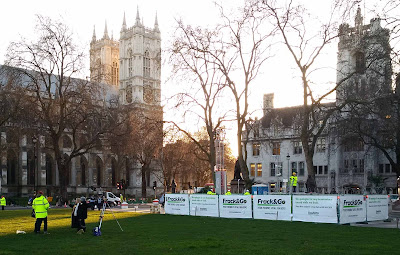Share it
 Wait for low tide. Put the strongest man on the best horse and send him to throw a javelin far out to sea. Where it lands will mark the extent of your holdings offshore.
Wait for low tide. Put the strongest man on the best horse and send him to throw a javelin far out to sea. Where it lands will mark the extent of your holdings offshore.
It’s not so simple now.
‘My lords, there are many balls in the air,’ begins counsel.
‘And in the water,’ says Lord Neuberger.
Lynn Shellfish Limited and others v Loose and another is a dispute over what the Aldeburgh poet George Crabbe called ‘shelly sands’. Norfolk fishermen are in court.
 Is Lynn Shellfish entitled to harvest the molluscs on certain sandbanks on the Eastern Wash? How do you measure low tide? What is the legal effect of siltation, which joins up sandbanks over time? Today’s incantatory phrases are time out of mind, time immemorial, in living memory.
Is Lynn Shellfish entitled to harvest the molluscs on certain sandbanks on the Eastern Wash? How do you measure low tide? What is the legal effect of siltation, which joins up sandbanks over time? Today’s incantatory phrases are time out of mind, time immemorial, in living memory.
And what could be more English than a case which considers the position in 1189 (the date of Richard I’s accession, an anchor point for proof of unbroken possession)? And a QC called Guy Fetherstonhaugh? If you’re reading this aloud it’s pronounced Fether – ston – haugh, not Fanshaw.
 Admiralty law comes and goes with the tide. Lord Sumption beams. He is in his element, mediaeval history.
Admiralty law comes and goes with the tide. Lord Sumption beams. He is in his element, mediaeval history.
There is mention of a duty of one farthing. And nostalgie de la boue: ‘We all like the cases best we were in as counsel,’ says Lord Clarke.
‘Provided we won,’ says Lord Neuberger.
The documentation is adrift. Bundle grumbles worsen when the bench turn to confusing colour-coded charts of the contested shore.
‘My lords, the chart is the wrong way up.’
‘Excellent,’ says Lord Neuberger.
 My pencil vanishes in a Bermuda triangle. I search for it anxiously while pretending not to.
My pencil vanishes in a Bermuda triangle. I search for it anxiously while pretending not to.
‘What is stubborn sand?’ asks Lord Neuberger. Counsel says it hugs the coast.
‘The cockles are all wild, are they?’ asks Lord Carnwath. Counsel agrees, then admits he does not know how they reproduce. ‘Never mind,’ says Lord Carnwath, ‘I can look it up on Wikipedia.’
 In the lunch break the usher tells me about an anti-fracking demo outside. I wonder if Tina Louise Rothery is there, a dedicated campaigner who stood for the Green party against George Osborne on an anti-fracking ticket. I met her when I was doorstepping Occupy out in the cold (see this blog).
In the lunch break the usher tells me about an anti-fracking demo outside. I wonder if Tina Louise Rothery is there, a dedicated campaigner who stood for the Green party against George Osborne on an anti-fracking ticket. I met her when I was doorstepping Occupy out in the cold (see this blog).
Dominating the charcoal ranks of lawyers, the national flowers on the velvet wall hangings are thorny and squirming, designed by Timorous Beasties who aren’t afraid to splash their florals with blood if the brief allows. I think of Crabbe’s humanoid plants on the unforgiving East Anglian coast:
Marsh flowers
Here the strong mallow strikes her slimy root,
Here the dull night-shade hangs her deadly fruit;
On hills of dust the henbane’s faded green,
And pencill’d flower of sickly scent is seen;
Here on its wiry stem, in rigid bloom,
Grows the salt lavender that lacks perfume.
At the wall’s base the fiery nettle springs,
With fruit globose and fierce with poison’d stings;
In every chink delights the fern to grow,
With glossy leaf and tawny bloom below:
The few dull flowers that o’er the place are spread
Partake the nature of their fenny bed.
These, with our sea-weeds, rolling up and down,
Form the contracted Flora of our town.
 Towards dusk I go out to Parliament Square. Greenpeace are staging one of their orderly spectaculars, a fake fracking station manned by protesters in high-vis jackets.
Towards dusk I go out to Parliament Square. Greenpeace are staging one of their orderly spectaculars, a fake fracking station manned by protesters in high-vis jackets.
 I see her standing out in the middle, by the last yard of sun, giving yet another media interview.
I see her standing out in the middle, by the last yard of sun, giving yet another media interview.
I shout her name across the cordoned-off tract of grass.
 I’d been painting the Tudor rose of England today as part of the Supreme Court emblem; here it is again on Tina’s badge.
I’d been painting the Tudor rose of England today as part of the Supreme Court emblem; here it is again on Tina’s badge.
Views are my sitters’ own. If I’m making any factual mistakes please let me know.
This post originally featured on Isobel’s blog Drawing from an uncomfortable position on 10 February 2016.



1 comment
Scott Styles said:
11/02/2016 at 23:17
A delightful account in words and pictures, thank you for it. Oh that the great judicial wordsmith Lord Denning MR was still alive! What a marvellous opinion he would have penned! I can just imagine a possible opening line:
“It was cockle collecting time on the Eastern Wash where since “time immemorial” when the Lionhearted king made war in the Holy Land local men gathered the spoils of the sea from the stubborn sand….”